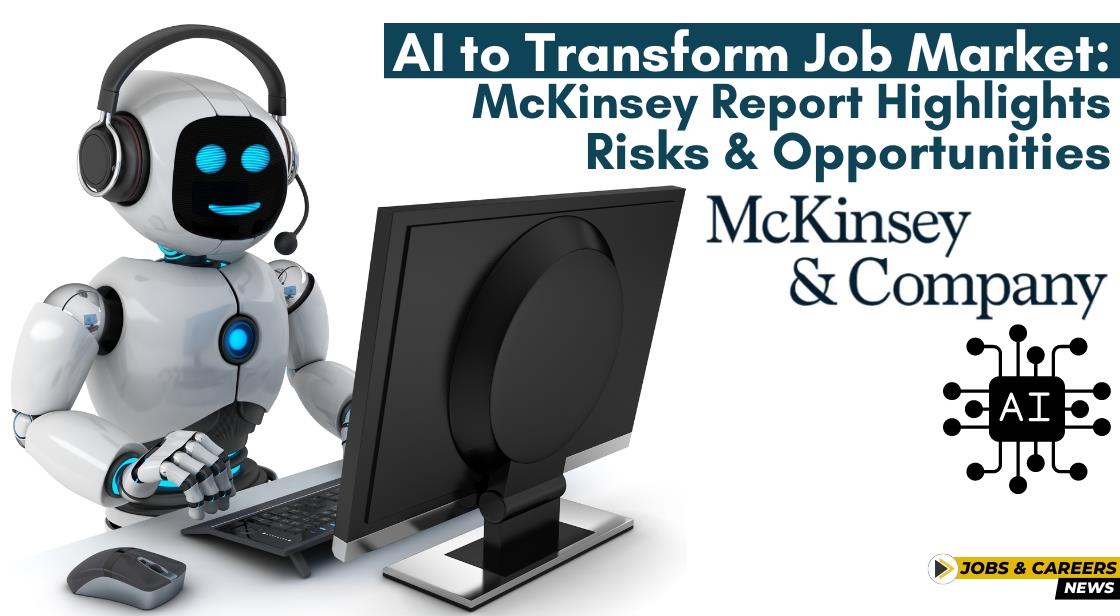AI to Transform Job Market: McKinsey Report Highlights Risks and Opportunities

News Synopsis
A recent report by McKinsey paints a thought-provoking picture of the future workforce. The report suggests that by 2030, a staggering 30% of current working hours could be automated by Artificial Intelligence (AI). This automation surge will undoubtedly compel many workers to transition into new professions.
AI Ushers in a STEM Renaissance
The report offers a glimmer of hope for those in Science, Technology, Engineering, and Mathematics (STEM) fields. The demand for workers with these skillsets is predicted to rise significantly across Europe. Similarly, the healthcare sector is expected to experience growth, driven by an aging population and the continuous advancements in medical technology.
Top Earners vs. Lower Wage Brackets: A Divergent Path
The report highlights a potential disparity in how AI impacts different income brackets. The study suggests that workers in the "top-earning occupations" across ten European countries might see an increase in demand. Conversely, those in the "two lowest-wage-bracket occupations" could be three to five times more likely to face career changes compared to their higher-earning counterparts.
AI and Automation: Identifying Vulnerable Sectors
The report also identifies sectors most likely to be affected by AI. Office administration, production work, customer service, and sales are predicted to experience significant job decline. These sectors often involve repetitive tasks like data processing and interactions, areas where AI excels with increasing efficiency.
Routine Tasks at Risk: The Rise of the Machines
The McKinsey report emphasizes that the decline in certain jobs will likely be concentrated in areas dominated by routine and repetitive tasks. These tasks often involve data collection, processing, and interactions, all of which AI can replicate with ever-growing efficiency.
Beyond the Headlines: The Human Touch Endures
It's important to note that the McKinsey report doesn't paint a picture of complete job displacement by AI. While some roles will undoubtedly evolve or be automated, others will emerge that require a unique blend of human skills and AI expertise. Critical thinking, creativity, problem-solving, and complex communication will remain highly sought-after attributes in the AI-powered workforce.
Sectors Most Affected by AI
According to the McKinsey report, the sectors most likely to be affected by AI include office administration, production work, customer service, and sales. These industries are characterized by a high degree of routine and repetitive tasks, such as data collection and processing, which AI can replicate with growing efficiency.
The report explains that the decline in these jobs will likely be concentrated in areas with tasks that are easily automated. As AI continues to advance, it will increasingly handle interactions and tasks that were once exclusively performed by humans, leading to a significant transformation in these sectors.
Conclusion
The McKinsey report provides a clear indication of the profound impact AI will have on the job market by 2030. While certain sectors may experience a decline, others, particularly STEM and healthcare, are poised for growth. As AI continues to evolve, workers will need to adapt, acquiring new skills and transitioning to professions that are less susceptible to automation. This shift presents both challenges and opportunities, emphasizing the need for continuous learning and adaptability in the workforce.
You May Like









